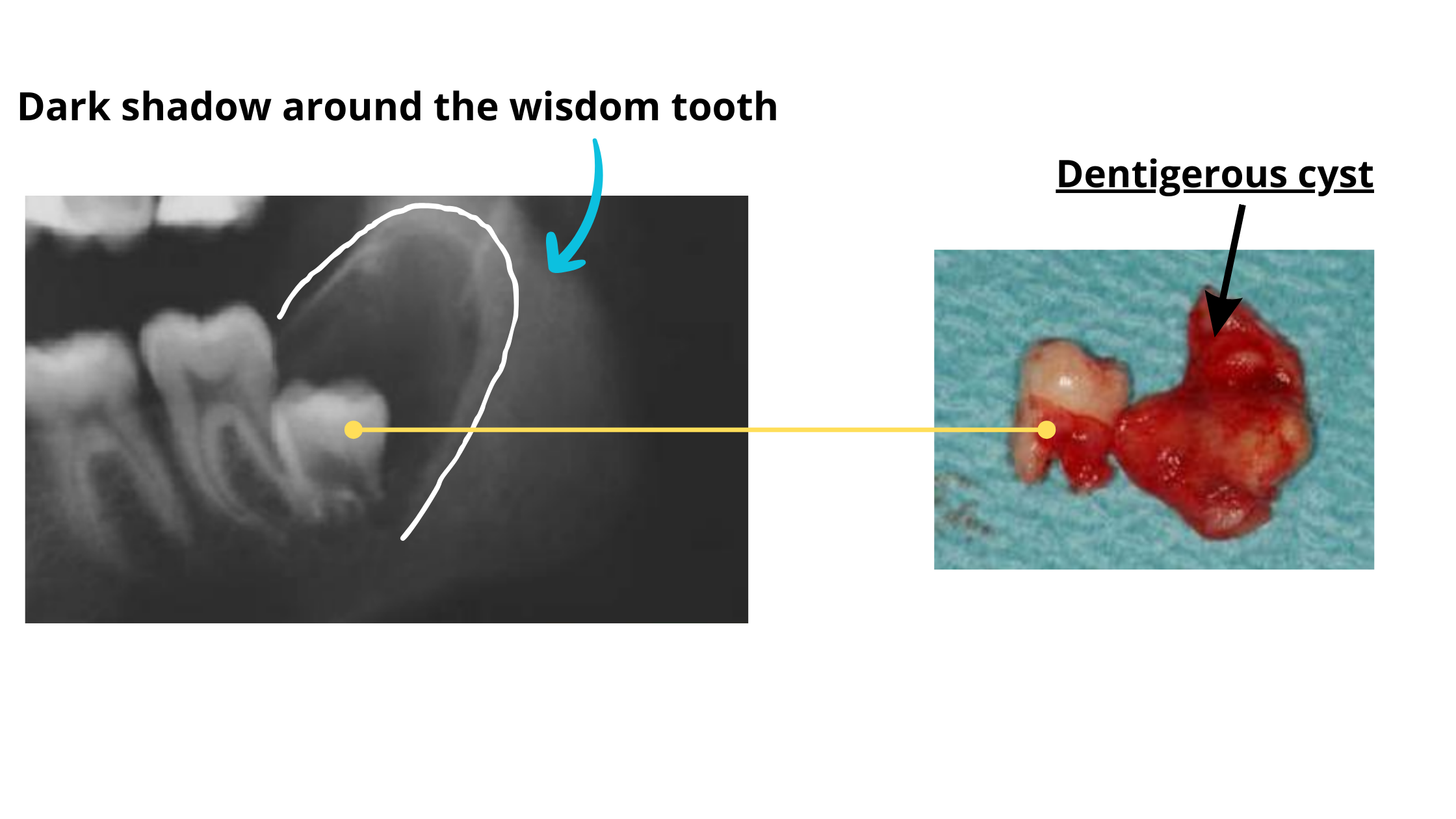Cyst On Tooth

A cyst on a tooth, also known as a dental cyst or odontogenic cyst, is a type of abnormal tissue growth that can develop in the jawbone or on the roots of a tooth. These cysts are typically filled with fluid or semi-solid material and can cause a range of symptoms, from mild discomfort to severe pain and damage to surrounding teeth and bone.
What Causes a Cyst on a Tooth?
Cysts on teeth are usually caused by an infection or inflammation in the pulp of the tooth, which can be triggered by a variety of factors, including:
- Deep decay or cracks: Bacteria can enter the tooth through deep decay or cracks, causing an infection in the pulp.
- Gum disease: Advanced gum disease can cause the gums to pull away from the tooth, creating pockets where bacteria can accumulate and lead to infection.
- Trauma: A blow to the tooth or jaw can cause the tooth to become damaged, leading to infection and cyst formation.
- Failed dental procedures: In some cases, a cyst can form as a result of a failed dental procedure, such as a root canal.
Types of Cysts on Teeth
There are several types of cysts that can form on teeth, including:
- Radicular cyst: This is the most common type of cyst, which forms at the tip of the root of a tooth.
- Dentigerous cyst: This type of cyst forms around the crown of an unerupted tooth, typically a wisdom tooth.
- Lateral periodontal cyst: This type of cyst forms on the side of a tooth, usually in the premolar or molar area.
- Glandular odontogenic cyst: This is a rare type of cyst that forms in the jawbone and can cause significant damage to surrounding teeth and bone.
Symptoms of a Cyst on a Tooth
The symptoms of a cyst on a tooth can vary depending on the size and location of the cyst, as well as the individual’s overall health. Common symptoms include:
- Pain or discomfort: A cyst on a tooth can cause pain or discomfort, especially when eating or drinking.
- Swelling or inflammation: The gum tissue around the affected tooth may become swollen or inflamed.
- Bad breath or taste: A cyst can cause bad breath or a bad taste in the mouth.
- Loose tooth: In severe cases, a cyst can cause the affected tooth to become loose.
Diagnosis and Treatment
Diagnosing a cyst on a tooth typically involves a combination of:
- Visual examination: A dentist will examine the tooth and surrounding tissue to look for signs of a cyst.
- X-rays or imaging tests: X-rays or other imaging tests, such as a CT scan or MRI, may be used to confirm the presence of a cyst and determine its size and location.
- Biopsy: In some cases, a biopsy may be necessary to confirm the diagnosis and rule out other conditions.
Treatment for a cyst on a tooth usually involves:
- Surgical removal: The cyst is surgically removed, usually under local anesthesia.
- Root canal therapy: If the cyst is caused by an infected pulp, a root canal may be necessary to remove the infected tissue.
- Antibiotics: In some cases, antibiotics may be prescribed to help clear up any underlying infection.
Prevention
While it’s not always possible to prevent a cyst from forming on a tooth, there are steps you can take to reduce your risk:
- Practice good oral hygiene: Brush and floss regularly to help prevent decay and gum disease.
- Visit your dentist regularly: Regular dental check-ups can help identify potential problems early on.
- Avoid tobacco and sugary snacks: Tobacco and sugary snacks can increase your risk of developing oral health problems, including cysts.
What is the most common type of cyst on a tooth?
+The most common type of cyst on a tooth is the radicular cyst, which forms at the tip of the root of a tooth.
How is a cyst on a tooth diagnosed?
+A cyst on a tooth is typically diagnosed through a combination of visual examination, X-rays or imaging tests, and biopsy.
Can a cyst on a tooth be prevented?
+While it's not always possible to prevent a cyst from forming on a tooth, practicing good oral hygiene, visiting your dentist regularly, and avoiding tobacco and sugary snacks can help reduce your risk.
In conclusion, a cyst on a tooth is a type of abnormal tissue growth that can cause a range of symptoms, from mild discomfort to severe pain and damage to surrounding teeth and bone. While it’s not always possible to prevent a cyst from forming, early diagnosis and treatment can help prevent further complications and ensure the best possible outcome. By practicing good oral hygiene, visiting your dentist regularly, and avoiding tobacco and sugary snacks, you can reduce your risk of developing a cyst on a tooth.
